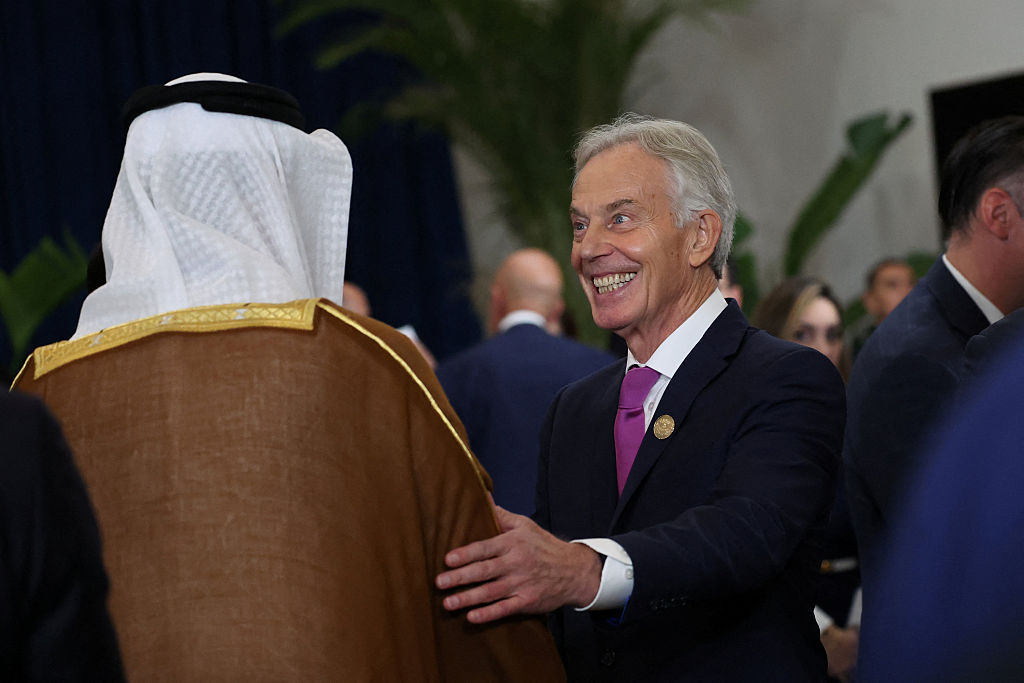Donald Trump seems to be questioning Tony Blair’s inclusion in the so-called ‘Board of Peace’ to rebuild Gaza. On Monday, speaking on Air Force One, the President said, ‘I like Tony, I’ve always liked Tony, but I want to find out that he’s an acceptable choice to everybody’.
Those backing Blair’s bid to be involved in the peace plan point to his role in rebuilding Kosovo. If he did it there he could surely do the same in Gaza, they argue. But is Kosovo really an example of successful nation building? And how much credit should we give to Tony Blair if it is?
Blair may have created a plan for Kosovo but he didn’t stick around to implement it or have to suffer the consequences of it failing
Blair certainly helped stop the ethnic cleansing in Kosovo by Serbia’s strongman Slobodan Milošević. He also worked extremely hard to get the US to intervene in the conflict, along with British troops (who were the first on the ground). But he did not build nor run Kosovo – and the way the country is doing now, he might not want to take too much credit for it.
Kosovo is currently in the middle of a constitutional crisis. The idea of a multiethnic country emerging out of the ashes of the Milošević era is a pipe dream, largely thanks to the current government led by prime minister Albin Kurti. Kosovo over the last four years has broken many of the promises it made to gain independence, particularly when it comes to the treatment of its ethnic minorities. Blair’s Kosovo is a segregated state with separate minority populations. It is not unusual to meet ethnic Albanians under 30 who have never met an ethnic Serb or been friends with an ethnic Roma.
Over one-third of Kosovars of all ethnicities have left Kosovo in the last four years. It is likely within ten years there will be few minorities left. For around half of Serbs, ‘Lack of respect for basic human rights and fear for personal safety is the main driver of emigration,’ according to NGO Aktiv, a local Kosovo Serb based think tank.
Kosovo is still the poorest country in Europe with an annual GDP of around €6,000. The country is deeply corrupt and has poor governance. Its education system is one of the worst by OECD standards globally, ranked 74th out of 80 countries. Its healthcare is abysmal as trained medical professionals leave for better paid positions in Europe. Last Sunday’s local elections had only a 39 per cent turnout, meaning only 791,123 citizens out of two million voters bothered to cast a ballot. Meanwhile, the peace is still maintained by the Kosovo Force (KFOR), Nato troops and over 10,000 police.
Internationally, the country is not doing much better. The EU has sanctioned Kosovo for the past two years for its treatment of its Serb community. As for the US, it recently cancelled its Strategic Dialogue discussions with Kosovo because of this escalation. The government, as the International Crisis Group analyst Marko Prelec says, is committing a form of ‘soft ethnic cleansing’ when it comes to the Serbian community.
So the jury is still out for Kosovo and some – particularly its minorities – would ask if Tony Blair’s strategy for the country really was successful.
Blair may have created a plan for Kosovo but he didn’t stick around to implement it or have to suffer the consequences of it failing. He never had to solve the internal disputes between political parties or stop a culture of revenge attacks or try to rebuild trust between communities, or hold war criminals to account.
Having worked in Kosovo and Afghanistan, I’d argue that nation building doesn’t work without the consensus of local leaders, the populace and international support. But I’d also add that it takes such a long time to actually do the hard work of building the nation, that political will often fades. The EU and the US have become tired of waiting for Kosovo to mature, and that will very much be the risk with Gaza. It’s reasonable to question if anybody, including Blair, has the patience to fix the enclave.







Comments